Introduction
Niche education platforms are specialized online learning environments designed to serve specific audiences, subjects, or pedagogical approaches. Unlike broad, general-purpose platforms, these services focus on targeted content areas such as coding for kids, language acquisition for adults, or STEM resources for homeschoolers.
In today’s education landscape, niche education platforms are becoming increasingly important. They offer customized learning experiences that address gaps left by traditional systems and large-scale e-learning providers. These platforms are particularly valuable for learners with unique needs, educators seeking specialized resources, and parents looking for tailored homeschooling solutions.
Several key trends are fueling the growth of these platforms. First, personalization is a major driver, as learners and educators seek content and pacing tailored to individual goals and learning styles. Homeschooling is also on the rise, creating demand for platforms that align with diverse curricula and teaching philosophies. Additionally, the increasing availability of open educational resources (OER) enables niche platforms to offer high-quality, low-cost content. Finally, intelligent tutoring systems powered by AI are enhancing the adaptability and responsiveness of these platforms, making them more effective and engaging for users.
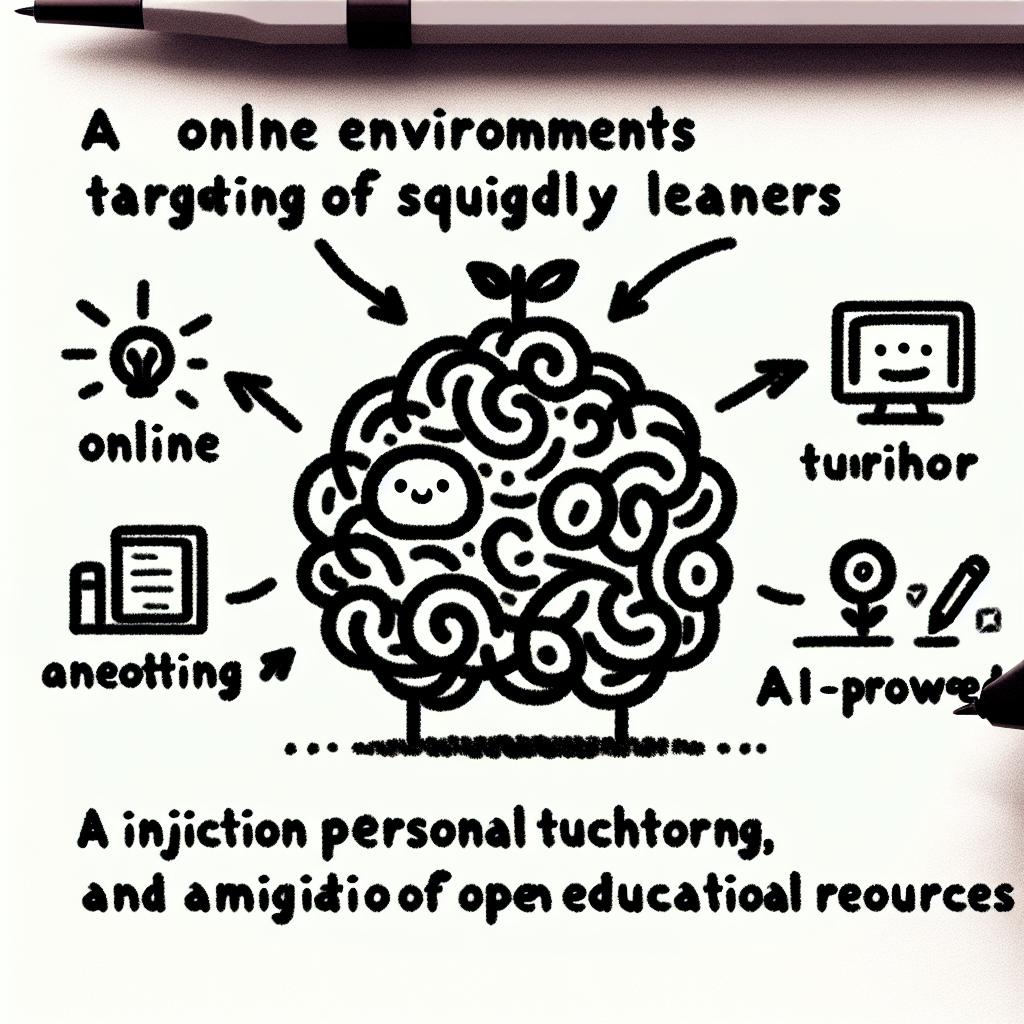
Evolution of Niche Education Platforms
Historical Context
The development of niche education platforms can be traced back to broader shifts in educational preferences and delivery methods. Traditional schooling models began to face growing scrutiny in the late 20th century, prompting an increase in alternative education approaches such as homeschooling. By 2012, the number of homeschooled students in the United States had reached 1.8 million—double the count from 1999 (ed.gov). This rise in homeschooling reflected a growing desire among families for personalized and flexible educational experiences, laying the groundwork for more specialized learning solutions.
Digital Transformation of Education
The digital revolution significantly accelerated the evolution of niche education platforms. With the proliferation of online learning tools, educators and learners gained access to a wide array of digital environments tailored to specific educational goals. This included platforms focused on coding, language acquisition, arts, and other specialized subjects. These tools allowed for more targeted instruction and created opportunities for learners to engage with content that matched their individual needs and interests. As a result, niche education platforms became a central component in the broader shift toward customized, learner-centric education models.

Categories of Niche Education Platforms
Personalized Learning Platforms
Personalized learning platforms use artificial intelligence and data analytics to create customized learning experiences for individual users. These systems adapt to a learner’s pace, strengths, and areas for improvement. For example, educational apps that implemented personalized recommendation features saw a 60% increase in content usage and a 14% rise in overall app usage (arxiv.org). This demonstrates how niche education platforms can significantly enhance engagement through tailored content.
Open Educational Resources (OER)-Driven Platforms
OER-driven platforms focus on democratizing education by offering free, open-source educational materials. These platforms increase accessibility, especially in underserved communities, and encourage collaboration among educators and learners. Research shows that OER systems not only improve user experience but also support efficient content sharing and co-creation (arxiv.org). As niche education platforms, they play a vital role in reducing barriers to quality education.
Intelligent Tutoring Systems (ITS)
Intelligent Tutoring Systems, such as CTAT+TutorShop, provide adaptive learning environments based on cognitive science research. These platforms can modify instruction in real-time based on student performance and behavior. ITS platforms have been used in approximately 147 studies to evaluate their effectiveness in improving learning outcomes (arxiv.org). Their evidence-based design makes them a powerful category within niche education platforms.
Homeschooling and Microlearning Platforms
Homeschooling and microlearning platforms serve learners outside traditional educational institutions. These niche education platforms support flexible schedules and cater to unique learner profiles, making them ideal for independent learners and small group settings. They offer modular content that can be consumed in short sessions, aligning with modern learning preferences and lifestyles.
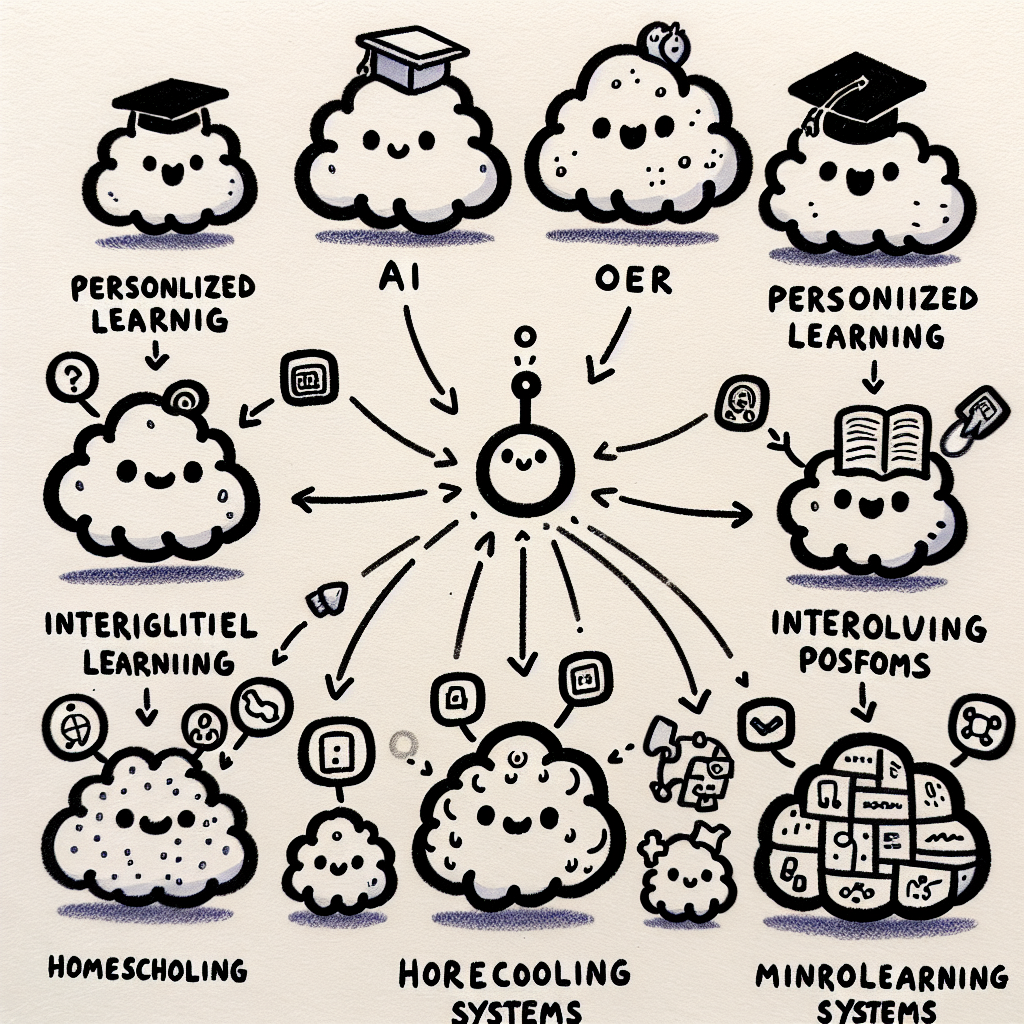
Key Features and Technologies
Personalized Recommendations
Niche education platforms leverage algorithms that analyze learner behavior to provide personalized content recommendations. These adaptive systems help align educational materials with a user's pace, preferences, and performance, which enhances user engagement and retention (arxiv.org).
Gamification and Problem-Based Learning
Many niche education platforms incorporate gamification and problem-based learning to increase motivation and retention. Interactive elements, such as badges, leaderboards, and challenges, make learning more engaging. Additionally, tailored, problem-solving exercises have been shown to outperform traditional lectures when it comes to improving learning outcomes (arxiv.org).
Data-Driven Feedback and Assessment
These platforms use real-time analytics to provide feedback for both learners and educators. By tracking progress and identifying patterns in performance, data-driven tools support informed instructional decisions and help guide learners along more effective educational pathways.
Interoperability and Open Standards
Niche education platforms often prioritize interoperability and adherence to open standards. This allows seamless integration with learning management systems (LMS), open educational resource (OER) repositories, and third-party assessment tools. As a result, cross-platform functionality is enhanced, improving the overall user experience and educational ecosystem.

Benefits of Niche Education Platforms
Enhanced Student Engagement
Niche education platforms promote enhanced student engagement by delivering personalized content that aligns with individual interests and goals. This tailored approach keeps learners motivated and more likely to persist in their studies. Additionally, these platforms often offer flexible formats—such as asynchronous lessons, interactive modules, and adaptive assessments—that cater to diverse learning styles and preferences.
Improved Learning Outcomes
Research indicates that personalized instruction can lead to better academic performance. Niche education platforms support this through targeted content and adaptive learning paths, allowing students to progress at their own pace. Evidence from studies shows that learners benefit from instruction that is tailored to their needs, resulting in improved outcomes (arxiv.org).
Broader Access to Education
By leveraging open educational resources (OER) and widely accessible digital tools, niche education platforms help reduce geographic and financial barriers to learning. These platforms enable students from underserved or remote regions to access high-quality educational content that may not be available locally (arxiv.org).
Scalability and Customization
Niche education platforms are designed to serve specialized audiences at scale. They allow educators to craft context-specific learning environments, tailoring curriculum and delivery methods to meet the unique needs of particular groups. This flexibility supports both large-scale deployment and individualized learning experiences.
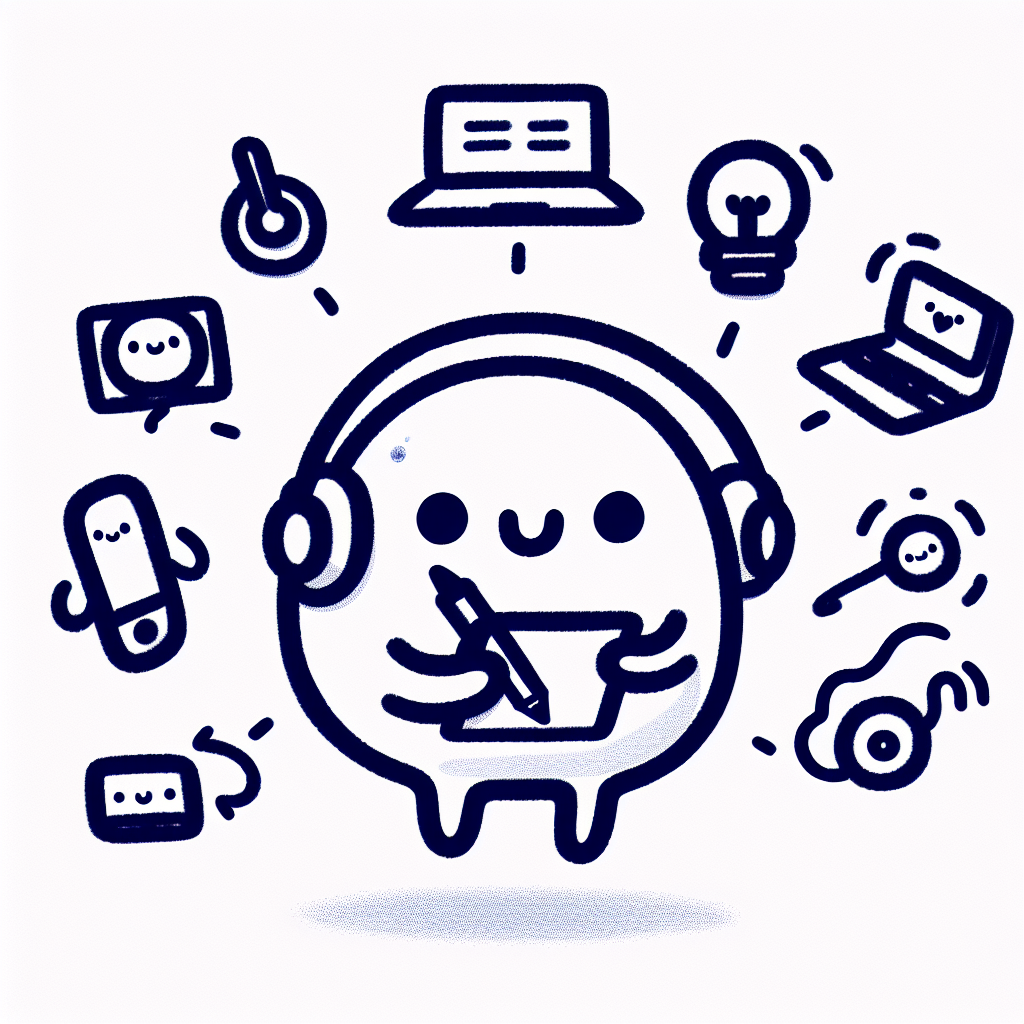
Use Cases and Success Stories
Homeschool Networks
Niche education platforms have become invaluable tools for homeschool networks, providing tailored solutions for curriculum planning and daily instruction. These platforms offer structured lesson plans, progress tracking, and interactive content designed to support parent-led education. By integrating digital tools, they help families create personalized learning experiences that align with educational standards while allowing flexibility in content delivery and pacing.
Higher Education and Professional Development
In higher education, niche education platforms are being leveraged to enhance instruction, particularly in STEM disciplines. Universities are increasingly adopting intelligent tutoring systems that provide adaptive feedback and personalized learning paths for students, improving outcomes in complex subjects. Additionally, platforms focused on microcredentialing offer professionals opportunities for targeted skill development. These platforms allow lifelong learners to earn certifications in areas such as data science, digital marketing, and project management, often through short, flexible courses.
Underserved and Remote Learner Communities
For learners in underserved or remote areas, niche education platforms designed with mobile-first functionality are making education more accessible. These platforms are optimized for low-bandwidth environments and often include offline capabilities, ensuring that connectivity issues do not hinder learning. By addressing specific infrastructural challenges, these tools are helping bridge educational gaps and expand opportunities for students in regions with limited access to traditional schooling.

Challenges and Considerations
Equity and Access
Niche education platforms must address the digital divide to ensure equitable learning opportunities. Many learners lack consistent access to high-speed internet or appropriate devices, which limits their ability to benefit from these platforms. Developers should prioritize mobile compatibility and low-bandwidth solutions to make content more accessible.
Inclusive content design is also essential. Platforms should incorporate diverse perspectives, multilingual support, and accessibility features such as screen reader compatibility and closed captioning to serve a wide range of learners.
Data Privacy and Security
Managing sensitive learner data responsibly is a critical challenge. Niche education platforms often collect personal information, learning analytics, and engagement metrics. These systems must comply with data protection regulations such as GDPR or FERPA, and implement strong encryption, secure authentication, and transparent data policies to protect users.
Pedagogical Rigor
The use of algorithms for personalized learning must be balanced with evidence-based instructional practices. While technology enables adaptive pathways, it should not replace pedagogical principles. Niche education platforms must collaborate with educators and researchers to ensure that content and delivery methods align with established learning science.
Platform Sustainability
Sustaining niche education platforms, especially those offering open educational resources (OER) or operating as nonprofits, requires viable funding models. Options include grants, institutional support, or freemium services.
Long-term maintenance and innovation are equally important. Platforms must plan for ongoing updates, infrastructure costs, and community engagement to remain relevant and effective over time.
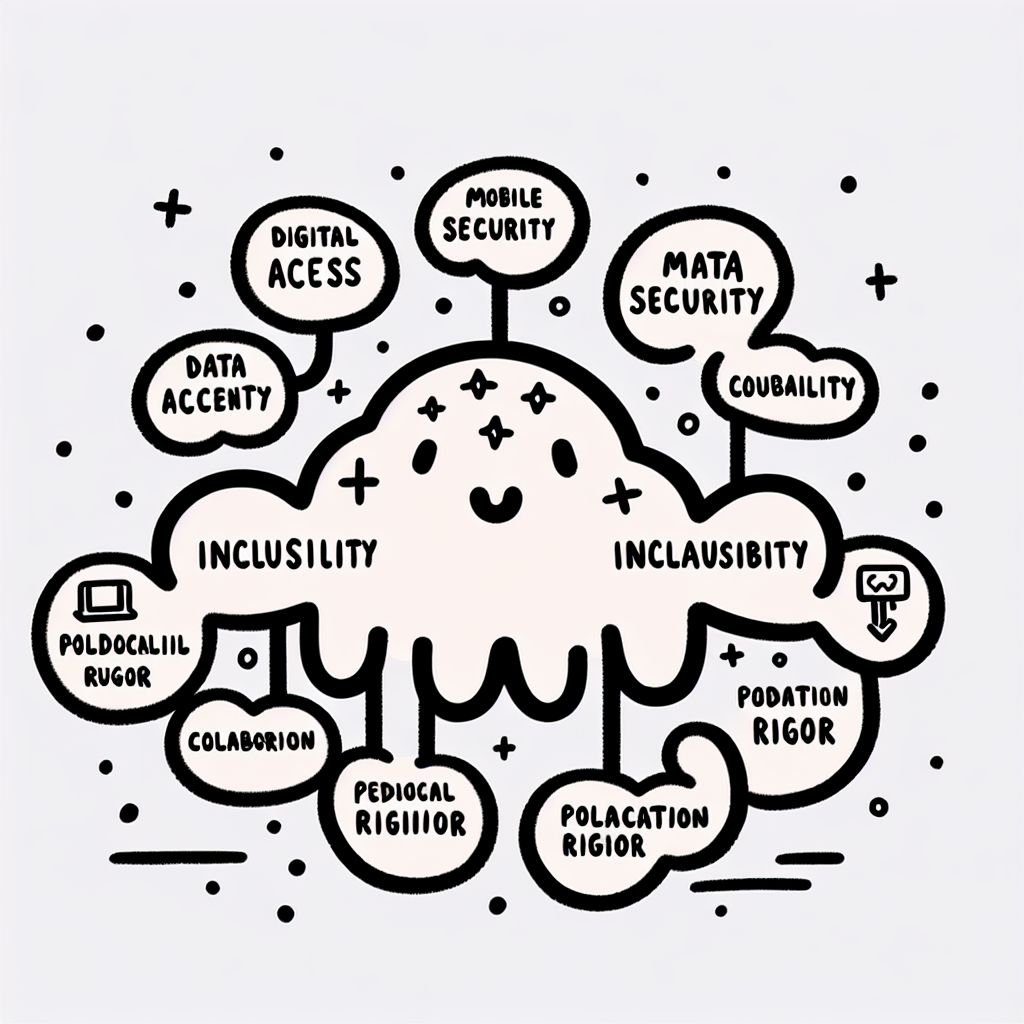
Future Directions
AI and Adaptive Learning
Niche education platforms are increasingly adopting AI and adaptive learning technologies to enhance personalization. Advanced algorithms now tailor educational content based on individual learning styles, pace, and performance data. These systems adjust in real time, offering more effective learning paths for users. Predictive analytics are also being integrated to forecast learner outcomes, enabling early interventions and improving success rates.
Integration with Emerging Technologies
Emerging technologies like virtual reality (VR) and augmented reality (AR) are creating immersive learning experiences tailored to specialized subjects. For example, a niche education platform focused on surgical training can use VR for simulated procedures, offering hands-on practice in a controlled environment. Additionally, blockchain technology is being explored for secure and verifiable credentialing. This ensures that certificates and achievements from niche platforms are tamper-proof and easily shareable.
Globalization of Niche Platforms
As niche education platforms expand globally, they must adapt to diverse cultural contexts. Cross-cultural adaptation involves localizing content to align with regional norms and educational expectations. Multilingual content delivery is also becoming standard, enabling platforms to reach a broader, international audience. This globalization supports the growth and accessibility of niche education platforms worldwide.

Conclusion
Niche education platforms are reshaping how we learn by offering tailored experiences that address specific learner needs. These platforms go beyond traditional models by leveraging personalization, openness, and intelligent systems to deliver more engaging and effective educational tools.
Through adaptive learning technologies and specialized content, niche education platforms empower diverse groups of learners, including those often underserved by mainstream education. Their focus on flexibility and accessibility allows for personalized learning paths that can significantly improve outcomes.
To fully realize their potential, continued innovation and research are essential. Equally important is the equitable implementation of these tools to ensure that all learners, regardless of background, can benefit from the advantages offered by niche education platforms. As these systems evolve, they hold the promise of transforming education into a more inclusive and effective environment for everyone.
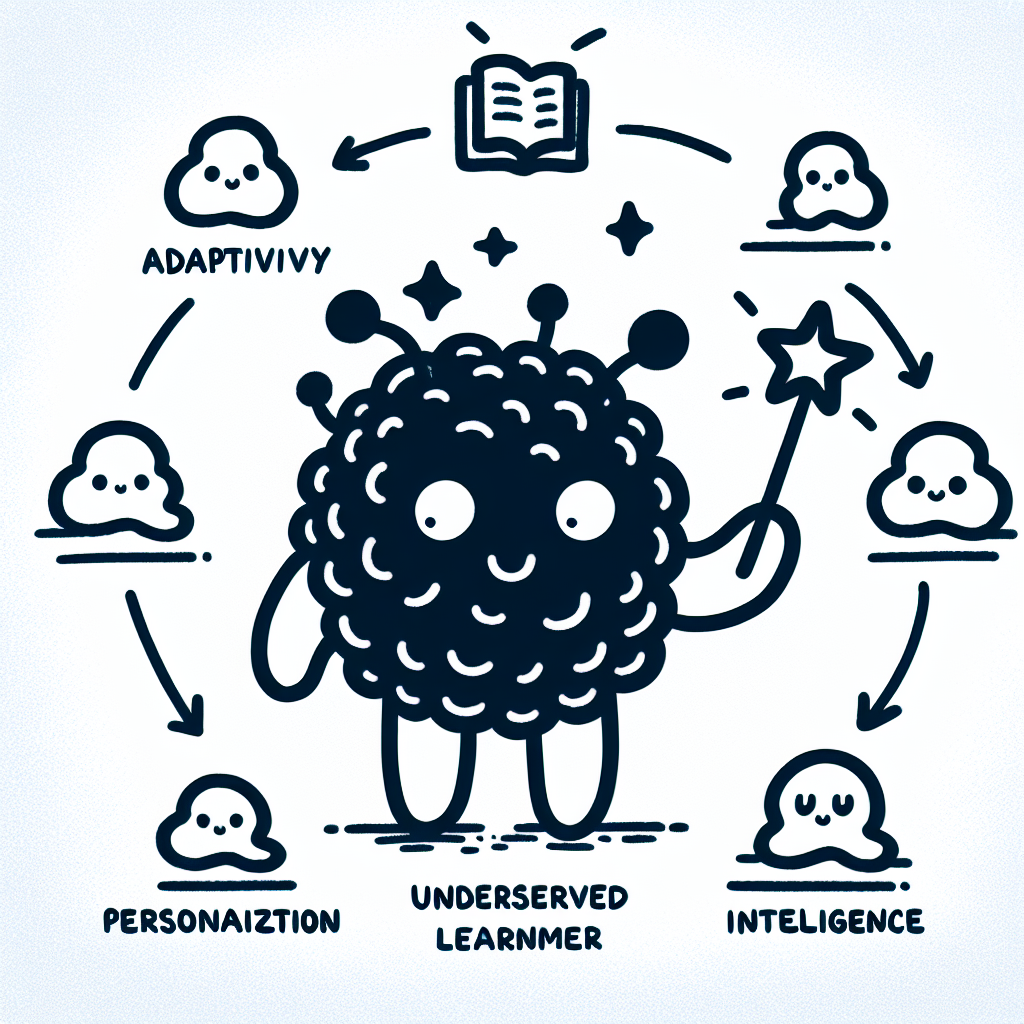
References
- Personalized Recommendations in EdTech: This paper explores how adaptive algorithms improve learner engagement by tailoring content delivery, a key feature leveraged by many niche education platforms.
- Statistics About Non-Public Education in the United States: This report provides data highlighting the growth and demographic distribution of non-public education, an important context for understanding the rise of niche education platforms.
- Comparative Study of Learning Outcomes for Online Learning Platforms: This study compares the effectiveness of various online learning environments, offering insights into how niche education platforms perform relative to broader offerings.
- Development of an Open Education Resources (OER) System: The paper discusses the architecture and impact of open education resource systems, which many niche education platforms integrate to provide cost-effective, scalable learning.
- CTAT+TutorShop: Integrated Platform for Intelligent Tutoring Systems: This research details the implementation of intelligent tutoring systems, a technological foundation that supports the specialized instruction delivered by niche education platforms.














